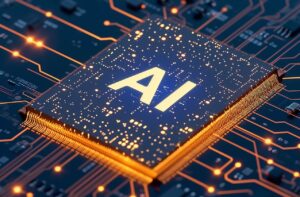In today’s fast-paced landscape of financial transactions and digital commerce, the fight against financial fraud is relentless. As fraudsters become more sophisticated, so too must our strategies for defense. Amid this ever-evolving battle, artificial intelligence (AI) has emerged as a powerful tool in combating financial crime. But what lies ahead for AI in fraud detection? This article explores the key trends and technological advancements shaping the future of AI in the ongoing effort to safeguard financial assets and data.
The Current Role of AI in Fraud Detection
Before we look ahead, it’s important to understand how AI is currently transforming fraud prevention. AI has revolutionized the way organizations detect and respond to fraudulent activities. Through machine learning algorithms, real-time transaction monitoring, and advanced data analytics, AI systems can flag anomalies, identify suspicious patterns, and significantly reduce financial losses. However, as fraud tactics grow more complex, maintaining the upper hand requires continuous innovation.
Emerging Trends Shaping the Future
Several technological trends are poised to redefine the landscape of AI-driven fraud detection:
-
Deep Learning and Neural Networks
Deep learning—a sophisticated subset of machine learning—is already making strides in fraud prevention. Neural networks with multiple processing layers are capable of analyzing complex and unstructured data, enabling a deeper understanding of transaction behaviors and uncovering subtle fraud indicators that traditional methods might miss. -
Reinforcement Learning
This branch of machine learning thrives on feedback from previous decisions, learning and adapting over time. In fraud detection, reinforcement learning allows systems to dynamically evolve in response to emerging fraud tactics, enabling real-time adaptability. -
Explainable AI (XAI)
As AI systems become more central to fraud detection, the demand for transparency increases. Explainable AI provides insights into how AI models reach decisions, making outcomes more understandable and defensible—especially critical in regulated industries. -
Federated Learning
With privacy concerns and data protection regulations on the rise, federated learning allows AI models to be trained on decentralized data sources without the need to move or expose sensitive information. This approach not only enhances security but also supports the development of privacy-conscious fraud detection systems. -
Blockchain Integration
Combining AI with blockchain technology introduces an added layer of security. Blockchain’s immutable ledger, paired with AI’s analytical power, creates a more transparent and tamper-proof system for monitoring and verifying transactions in real time. -
Quantum Computing
Though still emerging, quantum computing presents both opportunities and challenges. While it may disrupt current encryption techniques, it also offers the potential for creating far more secure fraud detection models and encryption systems—ushering in a new era of cybersecurity.
The Impact on Businesses and Consumers
The continued advancement of AI in fraud detection will yield substantial benefits. Businesses will experience reduced financial losses, stronger customer trust, and improved operational efficiency. Consumers, on the other hand, will benefit from heightened transaction security and fewer false positives, resulting in a smoother digital experience.
Navigating Challenges and Ethical Considerations
Despite its promise, AI in fraud detection is not without challenges. Striking a balance between security and privacy remains a pressing concern. Additionally, addressing algorithmic bias and ensuring fairness in decision-making processes are essential to building trust and compliance in the systems we deploy.
Conclusion: A Promising Path Forward
The future of artificial intelligence in fraud detection is both bright and transformative. As new technologies continue to evolve, AI will become even more indispensable in securing financial systems and preventing fraud. Though ethical and operational challenges remain, the potential benefits far outweigh the risks. By combining AI with innovations like blockchain and quantum computing, we can create a stronger, more adaptive defense infrastructure—one capable of protecting businesses, consumers, and the broader economy from the ever-changing threats of financial crime. The fight against fraud may never end, but with AI, we are better equipped to stay ahead.


